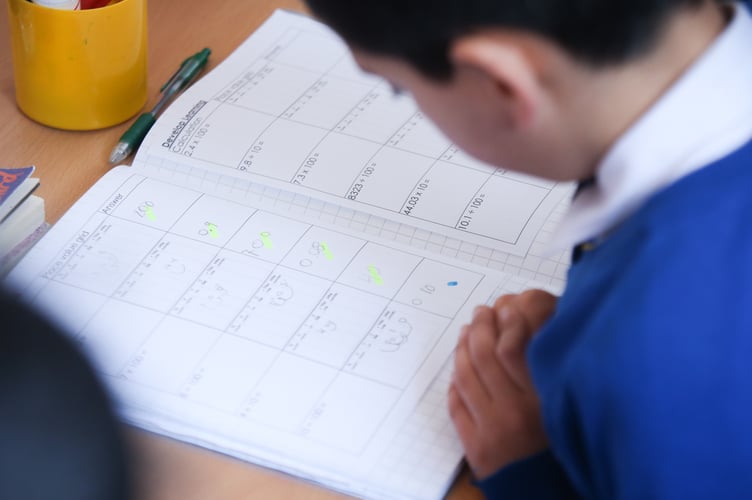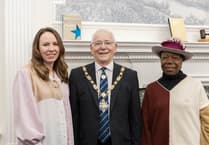Last year was the second time every Year 4 pupil was required to complete a standard times tables test, to help monitor the teaching of mathematics in England.
But some experts have branded it "unnecessary", saying it is unhelpful for teachers.
Department for Education data reveals 12,348 pupils across 235 Surrey schools took the test at the end of the last school year.
They were asked 25 multiplication questions, up to and including the 12 times table.
Their average score was 20.7, an increase on last year, when it was 17.1.
Nationally, there was a marginal improvement on last year's average mark, which increased from 19.8 to 20.2.
Across England, over 640,000 pupils were eligible for the test, with over 623,000 taking it in 16,405 schools.
Among the 4% of pupils who did not take the test, most were working below the level of the assessment and were recorded as having special educational needs.
However, some education experts have cast doubt on the usefulness of the checks.
Tiffnie Harris, primary and data specialist at the Association of School and College Leaders, said schools already regularly test multiplication skills.
She said: "Adding unnecessary tests on top of existing assessment methods is unhelpful for teachers and leaders tasked with delivering an already crowded curriculum."
She added: "The regional disparity is something that is evident with many other tests and exams. It reflects varying levels of deprivation across the country and the attainment gap between disadvantaged pupils and their peers.
"Closing this gap is key to improving any set of results but will require significant government investment."
Some 29% of pupils scored 25 out of 25, an increase on 2022 when it was 27.6%. This was the most common score achieved.
The figures also reveal differences in the performance of different groups.
On average, the 1,844 pupils in Surrey who receive free school meals scored worse than their peers, with an average score of 17.8 compared to 21.2.
Boys in Surrey scored an average of 21, better than girls who scored 20.4.
London was the highest performing region in England, with an average score of 21.1. The South West was the lowest performing with 19.7.
The average score in the South East was 20.
The Government said it introduced the checks as part of a series of reforms based on "best practice from countries such as Singapore and China", to boost the quality of teaching.
Schools Minister, Damian Hinds said: "Mastering times tables by age nine will make sure children can tackle more complex maths later on in life as well as help them with everyday adult activities.
"That is why it’s so exciting that these checks show more children are learning their times tables in primary schools alongside our phonics screening check which has seen an increase in results since last year.
"Together our reforms are driving up standards in our schools hand in hand with the hard work of teachers."




